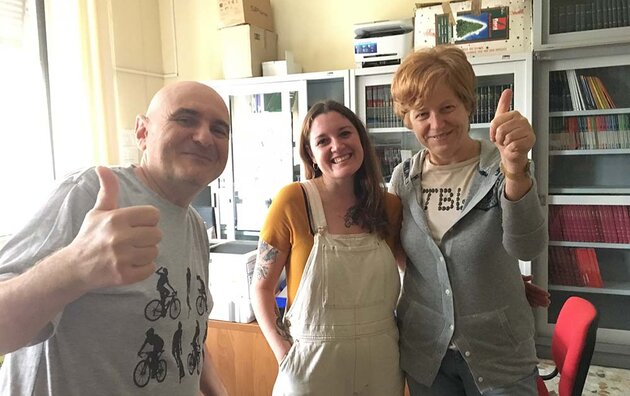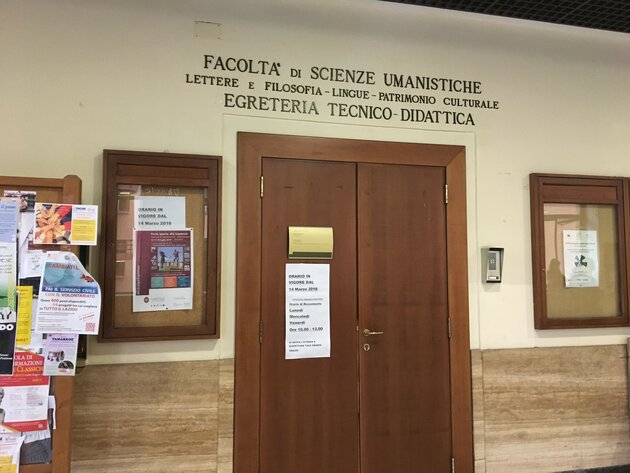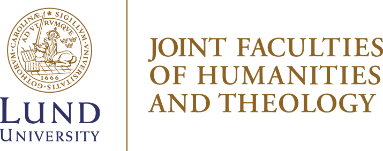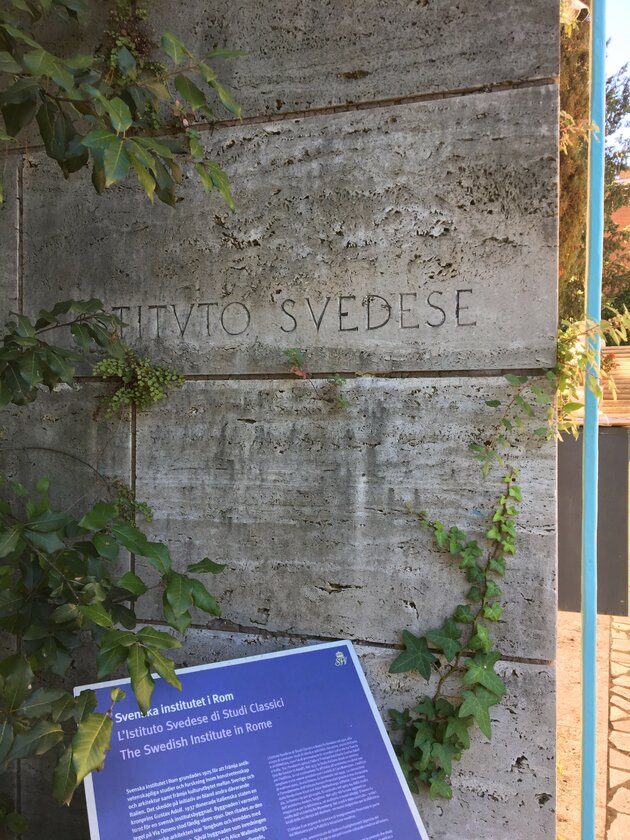Valeria Naters
Joint Faculties of Humanities and Theology
Valeria got to practise her high school Italian and experienced many new things both at La Sapienza and at the Swedish Institute in Rome. She challenged herself and emphasises that mobility abroad can, above all, be socially empowering.

Hello Valeria. Which department do you work at, and what is your role there?
I work as a research coordinator at the Department of Arts and Cultural Sciences and at the Sound Environment Centre. When I was travelling for professional development, I was working as a programme administrator in the same department.
In October 2019, you travelled to Rome as part of an Erasmus+ staff training programme. What made you decide to try this?
It was a lucky happenstance! It was at one of our staff meetings, which had a theme of internationalisation. One of the Faculty's international coordinators visited us and told us about different opportunities for professional development abroad. Before that, I hadn't realised that TA staff can also go on exchange through Erasmus+. I was inspired and immediately decided to apply to go to Rome.
How did you make a contact at the host university?
I wrote an email in broken Italian, introducing myself and my duties and explaining that I was looking for a host for job shadowing. I sent this to four or five different higher education institutions, both private and public. I approached people who, from what I could tell, had administrative responsibility and/or responsibility for international activities. Shortly after this, I got in touch with the international coordinator at the Department of Modern Languages and Cultures at Sapienza, who became my host. I also got in touch with the Swedish Institute in Rome, which I had always wanted to visit.
How long were you gone? What did the exchange consist of, and what did you experience?
The exchange itself lasted one week, five weekdays, including one day at the Swedish Institute. To maximise my stay in Rome, I was also there the weekend before and the weekend after. The work itself consisted of typical administrative tasks in the international office of the institution. I assisted the coordinators in sorting and organising documents, sat in on the open reception hours with incoming and outgoing students, and helped with interpretation and proofreading in English. Apart from the work, I got to experience a lot! I met many people, both staff and students, got to experience the campus culture at Sapienza, had a guided day at the Swedish Institute, where I also sat and worked for a few hours and attended a book fair. After the working days, I explored Rome on foot, took part in guided tours, and ate lots of good food.
Were there any language difficulties?
English was a bit of a challenge for my colleagues in Rome, but I was prepared for it and wanted to dust off my high school Italian. Everything went well.
How was it to meet with your colleagues in Rome?
It was exactly as I expected, warm and disorganised. They had forgotten that I was coming on Monday, so I ended up taking a walk around campus while waiting for my host to come to work. I was in Rome for paid working time on a sunny autumn week. What could I possible have to be upset about?
What was most rewarding?
Learning so many new things about how university life works in another country and overcoming so many personal challenges. I am quite shy. I am quite shy. It is empowering to practise letting go of control, to articulate your professional role and to converse with colleagues in a language you are not comfortable with. Above all, I would say that mobility abroad is socially empowering.
What was most challenging?
Although an exchange is full of meetings with different people, you end up spending a lot of time alone. As an exchange student, it is probably easier to find natural social contexts, but the adult colleagues went home at the end of the working day. After a week, I was kind of over having conversations with myself in my head. But I would do it all over again in a heartbeat.
Did you have a lot of work to catch up on when you got back home?
Some, but not as much as if I had been away because of an unexpected flu. I had planned to be away and informed my colleagues in Lund well in advance. I also had the opportunity to do some work during the exchange.
Would you recommend this to other colleagues?
Every time!



